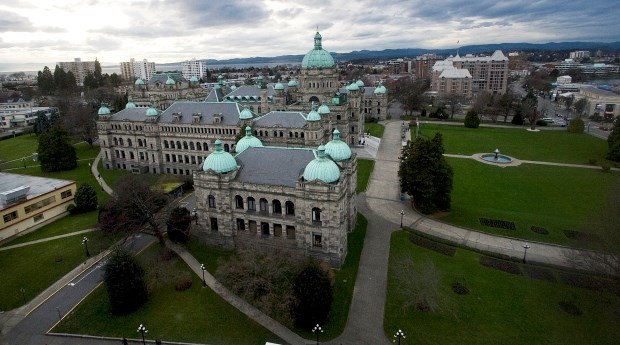Elections B.C. is investigating allegations that lobbyists made illegal donations to the B.C. Liberal Party.
Chief electoral officer Keith Archer said Monday that the probe will investigate a report by The Globe and Mail that lobbyists donated money to the party under their own names and were then reimbursed by clients.
Archer said the Election Act prohibits indirect political donations in which someone contributes to a party using someone else’s money. The law requires political parties to record whether a donation comes from an individual, business, union or non-profit organization.
It’s unlikely the investigation will be completed before the provincial election on May 9, Archer said in an interview. “If the news reports are accurate ... and the breaches of the act are as extensive as suggested, I think it will be a fairly extensive investigation and it would be really unlikely that we would have the results of this before May 9.”
Archer said the investigation will not focus solely on donations to the B.C. Liberals. “We’re not really taking a party approach to this at all,” he said. “One of the individuals who’s named within the [newspaper] story has contributed to a number of political parties here in B.C., so there’s not, in any sense, a limitation to one party or another.”
Results of the investigation could be forwarded to the Criminal Justice Branch if it appears someone violated the Election Act. A conviction carries a maximum penalty of a year in jail and a fine of $10,000.
Deputy Premier Rich Coleman said the B.C. Liberal Party has done nothing wrong and will cooperate fully with the investigation. “I can assure everybody that the B.C. Liberal Party follows every single rule and law relative to campaign donations to political parties in B.C. and follows, to the law, Elections B.C.”
Coleman said the party is not always able to tell whether someone buying tickets to a fundraising event is being reimbursed by a client or corporation. “If somebody buys tickets online . . . they don’t disclose to us that they’re actually collecting that money back from somebody else and the act is very clear — you can’t do that.” Coleman said it’s up to donors to follow the law. “For us to somehow reverse audit that, I think that’s pretty hard. I don’t know we have the resources to do that.”
Opposition Leader John Horgan said he has instructed the NDP’s head office to review the past three years of donations to make sure there were no improper donations. “We go to great lengths to ensure that if someone attends an event or makes a contribution to our political party, they’re doing it in their name,” he said.
B.C. Green Party Leader Andrew Weaver, whose party banned corporate and union donations last year, said it is crucial that any investigation be completed before the May 9 election. He wants the RCMP to get involved.
The B.C. Liberals have been under fire for months for holding “cash-for-access” fundraisers in which donors pay hefty sums to attend dinners with Premier Christy Clark or her ministers.
Horgan, Weaver and Independent MLA Vicki Huntington have all urged reforms.
Horgan introduced a bill last month to ban corporate and union donations — the sixth time the Opposition has introduced the bill since 2005.
The government rejected the reforms, but hinted that it may introduce legislation requiring parties to adopt the B.C. Liberal Party’s system of reporting donations more regularly.
Horgan said that ignores the real problem, which is that the Liberals receive large sums of money from individuals and corporations that want decisions made in their favour. “It’s not transparency,” he said. “This is about the influence of money in our politics.”
Huntington said that her call for a $1,500 cap on donations would have prevented the latest controversy. “If you put a limit on it, it doesn’t matter what organizations or individual contribute,” she said. “At least, you know that it’s of a size that’s not going to be able to influence decision-making, and that’s what you’re trying to avoid here.”
Coleman, however, made clear that the government is happy with the current system. “As far as I’m concerned, we haven’t changed anything, we’re not about to change anything.”



